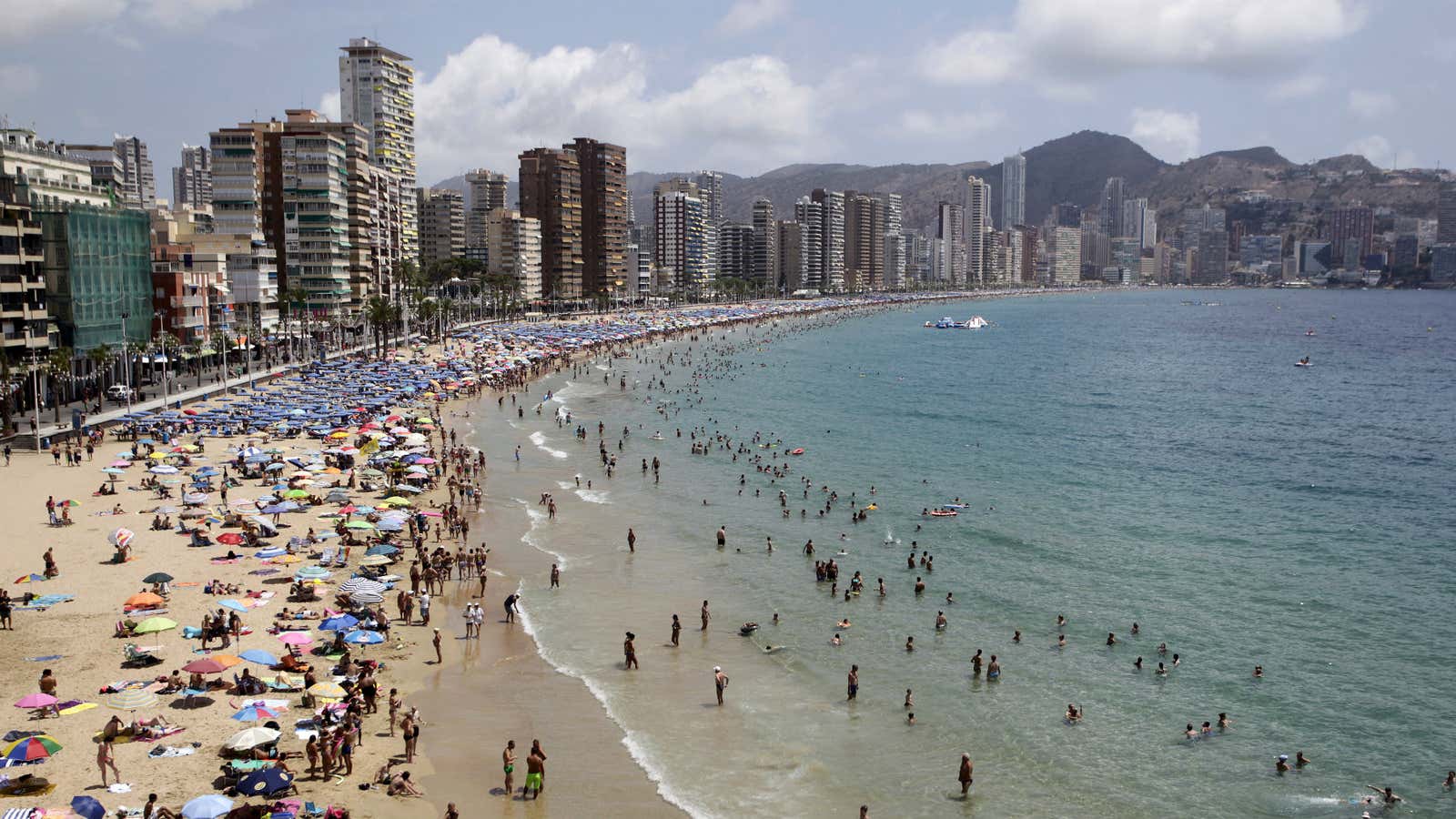The adage “sell in May and go away” was coined partially as a low-volatility investing strategy and partially as cover for vacation-hungry financiers. Either way, it’s looking like it would have been a good move this year.
August in particular has been brutal and today (August 21) was a rough day for pretty much everything.
The broad consensus is that China sparked the selloff. But you can point a finger at the Federal Reserve, too. It did investors few favors with its mixed July minutes, which left sufficient doubt around when the world’s most influential interest rate would finally go up.
If you sold everything in your 401(k) by May 29, the last business day of the month, here’s what happened in your money’s absence:
Neil Irwin at the New York Times suggests this is just the kind of thing investors and the rest of us need (paywall) to stay alert about what’s happening in the global economy:
That’s not to minimize the losses investors have incurred, or to say that each of these moves can be completely justified by data, and certainly not to predict what will happen next week or next month. But if you step back just a bit, what has happened in financial markets this week looks less like a catastrophe in the making and more like a much-needed breather when various markets had been starting to look a little bubbly.
In the event you didn’t cash out all your assets before the summer was in full swing, you might want to consider some other advice.




